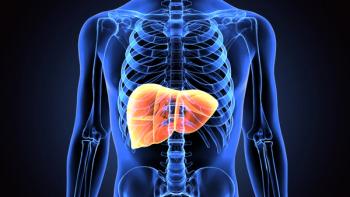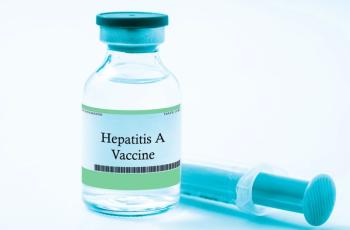
Precision Medicine for Hepatitis B: Roche's Elecsys HBeAg Quant Test
Roche test could lead to early identification of infections.
Advances in medicine have paved the way for personalized treatment options, tailoring therapies to individual patients based on genetic and molecular factors. Patients suffering from hepatitis B (HBV) may now also begin to experience the benefits of precision medicine.
Roche, a leading pharmaceutical company, has introduced a groundbreaking test called Elecsys hepatitis B e antigen (HBeAg) Quant that promises to revolutionize the management of hepatitis B.
HBV is a major global health concern, affecting approximately 300 million people worldwide. It is a silent killer, often progressing silently and leading to severe liver damage, cirrhosis and even liver cancer. Not all acute infections will progress to a chronic state, but those that do will vary in terms of severity and clinical phases.
HBeAg is an early antigen (e-antigen) that appears before a person develops symptoms of acute hepatitis B infection. Levels of HBeAg expression are detectable during proliferation of HBV thus serving an important role as a diagnostic indicator for ongoing HBV infection.
Because of recent advances in precision medicine, the management of patients with HBV can be tailored based on long-term outcome predictors like levels of HBV DNA, which help inform treatment initiation and treatment response.
Roche's Elecsys HBeAg Quant Test is a diagnostic tool that provides healthcare professionals with information to effectively manage HBV treatment. Roche says the test will help physicians assess the need to treat patients with antiviral medications and monitor their response to treatment.
The immunoassay measures the amount of HBeAg in the blood. The qualitative and quantitative determination of HBeAG helps determine a patient's viral load and the potential for disease progression.
The diagnosis and monitoring of hepatitis B infection, including the determination of HBeAg status, are important in the management of the disease. HBeAg seroconversion, where the HBeAg becomes negative and the corresponding antibody becomes positive, is considered an important endpoint in the treatment of chronic HBV.
The testing time for the ElecsysHBeAg test is relatively short; the test operates on a sandwich assay principle. Results are interpreted based on the cutoff index (COI), with a COI of less than 1.0 indicating a nonreactive result and a COI of 1.0 or greater indicating a reactive result. The test is traceable to the WHO 1st International Standard for HBeAg.
The Elecsys HBeAg test can be performed using serum samples collected using standard sampling tubes or tubes containing separating gel. Various types of plasma tubes can also be used. The sample volume required for the test varies depending on the analyzer or module used. The onboard stability of the samples ranges from eight weeks to 16 weeks, depending on the analyzer or module.
Knowing the presence and activity level of HBeAg in the blood is key to determining a patient’s prognosis and the most effective course of treatment. A positive test result for HBeAg can indicate an acute or chronic infection with the virus, whereas a negative result may suggest that an individual has been exposed but is not currently infected. Additionally, monitoring levels of HBeAg over time can help physicians determine the efficacy of treatments such as antiviral medications or lifestyle changes.
A positive test result mean thatd an individual is infected with HBV, which can lead to an increased risk of liver diseases, such as cirrhosis and cancer. They would be advised to get vaccinated and practice safer sex. Additionally, those who are diagnosed should seek medical advice about how best to manage their condition to prevent progression and further health complications.
Treatment of HBeAg positive is a focus on controlling the replication of the HBV and reducing the liver damage it causes. Treatment may involve medications, such as antiviral drugs, or interferon injections. Additionally, lifestyle changes like healthy eating, regular exercise, and avoiding alcohol can help reduce symptoms and improve quality of life.
Newsletter
Get the latest industry news, event updates, and more from Managed healthcare Executive.























